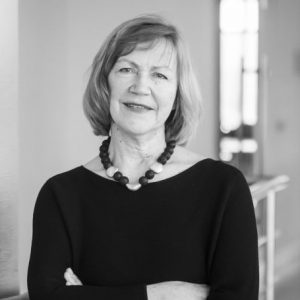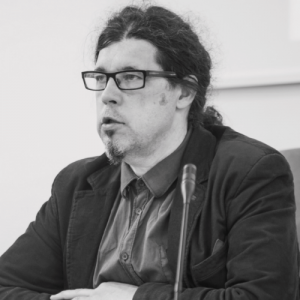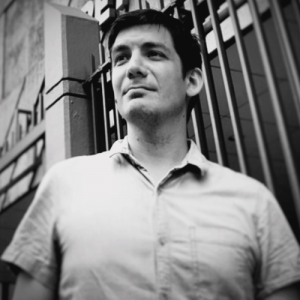Conference for innovative teaching
24-27 October 2022 | Vytautas Magnus University, Lithuania
About
The first Transform4Europe Alliance’s international conference-hackathon “Transform4Europe International Conference-Hackathon for the Innovative Teaching and Learning Methods in Higher Education (INNO-METHODS)”, is taking place on 24-27 October 2022 at Vytautas Magnus University.
The aim of the conference is not only to share existing educational practices but also to anticipate and explore possible future solutions. To this end, participants will be invited to take part in the first Hackathon, which will focus on the practical application and development of innovative methods in higher education. The conference aims to foster the exchange of ideas on innovative teaching and learning methods in higher education, combining the capacities of all Transform4Europe Alliance partners.
The programme includes a wide range of activities – lectures by the keynote speakers, prof. dr. Gintautas Mažeikis and prof. Stefanija Ališauskienė, presentations by researchers, poster sessions, a hackathon, and an enlightening lecture about mindfulness techniques. Also, the four winners of the best innovative teaching practices in the “Transform4Europe” Innovative Teaching Award contest will be presented with their awards during the conference.
Thursday, 27 October, will be a day of workshops and training sessions where researchers will showcase innovative teaching practices and ways to apply them. The sessions will be available for everyone to watch remotely, as they will be streamed on the MS Teams platform.
- Download the conference brochure
- Download the conference programme (PDF, 6,9 MB)
- INNO-METHODS workshops (PDF, 445 KB)
- Download the guide for the participants of the conference (PDF, 212 KB)
SUB-THEMES
The sub-themes of the first INNO-METHODS conference are as follows:
Enhancing students’ globally responsible entrepreneurial mindset
Knowledge entrepreneurship differs from the traditional economic concept of entrepreneurship in that it does not just aim at producing or maximizing monetary profit but rather the enhancement of knowledge production and the development of knowledge and expertise through an applied approach. The knowledge-entrepreneurial mindset is characterized by specific competencies (creating new values, reconciling tensions and dilemmas, taking responsibility) and specific knowledge (systemic, critical, generative and reflexive, with both societal and scientific impact).
Inclusive learning and teaching in higher education
Inclusive education is paramount to high-quality education for all learners and the development of a society that embraces diversity and respects the rights and dignity of all. Inclusive learning and teaching refer to the ways in which pedagogy, curricula and assessment are designed and delivered to engage students in learning that is meaningful, relevant and accessible to all.
Digitally enhanced learning, teaching, and assessment
The Covid-19 pandemic induced a radical shift toward digitally enhanced learning and teaching (DELT) and e-assessment strategies. DELT refers to any type of learning or/and teaching that is accompanied or supported by technology to improve students’ interaction, engagement, and understanding within their classrooms and lecture theatres.
Education for sustainability through active methodologies
The Sustainable Development Goals (SDGs) aim that by 2030 people will have acquired the necessary knowledge and skills to promote sustainable development. Education has a capital responsibility in addressing issues that affect the welfare of communities by introducing innovative methodologies that can promote critical thinking and creativity of students not only on the subject of study but also beyond it. Active methods such as problem-based learning, service-learning, or project-based learning (among others) can lead to meaningful learning promoting essential decision-making, problem-solving, research, analysis, and negotiation skills.
The development of teaching excellence in higher education
Teaching excellence is now part of the everyday language and practice of higher education. The focus is on innovative and effective practices to train teaching excellence, including good case studies of excellence training and curricula development.
KEY-NOTE SPEAKERS
Key-note speech:
Inclusive teaching: innovative teacher education through personalized learning
Key-note speaker:
Stefanija Ališauskienė is a professor in the Education Academy, Vytautas Magnus University, Lithuania. She specializes in educational support specialist education and teacher education for inclusion. Her research interest includes special needs and inclusive education, and early childhood intervention. She has an extensive expertise in special needs education and developments towards inclusive education acquired through national and international research projects.
Main focus:
The presentation focuses on the issue of ongoing transition from a traditional teacherdominated to a learner‐dominated paradigm that requires a major shift in the culture of Higher Education towards much greater personal involvement of learners in the design implementation and evaluation of their own personalized learning journey. By employing participatory approaches that emphasize the personalization of learning it is also intended to support teacher educators and their students to address issues of social and cultural equity, diversity and inclusion in education.

Key-note speech:
The third wave of critical theory and critical pedagogy workshops
Key-note speaker:
Prof. Gintautas Mažeikis – philosopher, Head of the Social and Political Critique Centre at Vytautas Magnus University. His research is mainly devoted to Critical Theory and Symbolical Thinking in political philosophy, cultural studies, social work, and activism. His books analyse problems of propaganda, villainy, evil, and cultural politics.
Main focus:
Based on the reasoning of Theodor Adorno, Henry Giroux and Axel Honneth, new critical issues of pedagogy are analysed. The main question raised is: How could the Soviet and Russian pedagogy educate a Putinist person: immoral, ideologically engaged, thinking in the context of grand narratives, guided by historical and geopolitical paralogisms and sophistry, ready to despise and kill people of other nations?
The question arises whether the Lithuanian education system, which still holds many Soviet and post-Soviet attitudes, where instrumental thinking, apparatus subordination and the cult of achievement flourish, is sufficient to resist not only the aggression of external totalitarianism but also the origin of internal totalitarianism.

Key-note speech:
Getting ready for the new abnormal: innovations to support a lifelong learning lifecycle
Key-note speaker:
Anthony F. Camilleri is a founder and senior partner at the Knowledge Innovation Centre. He has worked for the past ten years as a consultant on innovation of education and employment systems, with a particular focus on digitisation and quality assurance. He has spent his entire career working in highly international environments and has consulted with the European Commission, European Training Foundation, Joint Research Centre, UNESCO, Asian Development Bank, International Labour Organisation, GIZ and the Maltese Government. In recent years, he has advised the European Commission on policies and practices for micro-credentials, as well as designed the Europass digital credentials infrastructure. In digital learning, he has worked with the UNIQUE and ECBCheck certification schemes for online learning for EFQUEL and has coordinated European-wide hackathons for digital teaching. Within training, he has worked on a series of projects focusing on quality assurance of work-based learning and apprenticeships, with the aim of optimising and coordinating business processes between educational providers and SMEs.
Main focus:
Despite decades of work to harmonise educational systemsin Europe and increase the permeability and flexibility of Higher Education, most tertiary education still happens in 3-7 year blocks concentrated before a student’s career. The changing social and economic priorities have been testing the limits of this model, but it has proven resilient -arguably because of a lack of effective and trusted alternatives.
The presentation will examine how European policymaking supports a suite of innovations, including micro-learning, digital credentials, semantic interoperability forhigher education, and artificial intelligence. The presentation will show that, taken together, these factors reach an inflection point which will vastly increase the flexibility of European Education Systems, allowing for rapid response to emerging social and economic trends.

DETAILED INFORMATION
Hackathon: The Hackathon’s aim is to find solutions for the implementation of inclusive education through innovative teaching and learning methods.
The Hackathon will have five sessions, each with a short presentation of experts and a workshop. At the end of the Hackathon, the teams will present the developed recommendations for inclusive education.
Expected participants and listeners of the conference are:
- Academic staff
- Presenters of the best innovative teaching practices within the Transform4Europe project (WP4 questionnaire)
- Educational consultants
- Stakeholders of the Transform4Europe initiative, etc.
- Schoolteachers
- Tech developers and providers
- Other
All proposals need to be submitted and presented in English, and only such proposals will be considered. As only submitters will be able to communicate this decision to us, we strongly recommend that submissions be made by a presenting author. Registration for in-person and online participation will open thereafter. With this, we hope to enable both a lively and fruitful in-person conference while opening up for those who might find it challenging to travel to the event.
Submissions and Review Guidelines: Proposals on the conference sub-themes, especially personal research, project achievements, case studies, theoretical and conceptual work, and the creative use of educational technology, are welcome. Networking, interactivity, sharing, peer learning and discussion will be the core aspects of the conference.
All papers must be original and not submitted simultaneously to another conference or journal. The following formats are encouraged:
- Full papers – presentation of research results, reviews of existing results including empirical or theoretical studies, policy reviews, comprehensive case studies and consolidated project achievements.
- Workshops – comprehensive, substantial hands-on, practical application of open, distance, e-learning achievements within a workshop environment.
- Posters – work-in-progress, initial research results, projects in initial stages of development, and case studies. Poster presentations will be themed in moderated sessions with a short oral presentation and discussion.
- Demonstrations – a showcase of practical innovation, products, software, technologies, and tools. Demos offer an opportunity to exhibit prototypes, exchange ideas, and collect feedback from expert users.
- Synergy sessions – aim to offer meetings of fellow project coordinators, partners and researchers to share and discuss EU projects and initiatives. They are useful for partner search, dissemination, networking, and discussion of ideas under development. Following a few minutes of introduction of your idea, an extensive discussion takes place about clusters of short presentations.
- Training sessions – focusing on a particular topic, setting clear training objectives as well as competency areas and/or skills to be acquired by the participants
- Participant without presentation (listener) – save the date.
Please ensure that you have read and understood the assessment criteria.
Selection Process: Decisions on acceptance will be based on the originality, innovation and scholarly quality of the proposal, its relevance to the conference theme, and the proven experience of the author(s). Contributions not matching the conference themes will also be considered if they offer new knowledge and benefit delegates. The reviewers and the programme committee will decide on the format assigned to the accepted submissions to ensure an appropriate conference experience and structure. All proposals will undergo a rigorous review based on the assessment criteria given below. The panel will adopt a holistic perspective to review proposals and develop thematic relevance. All accepted papers will be presented either in person or online. A notice of paper acceptance will be delivered to registered participants at their e-mail addresses.
Assessment Criteria:
- Relevance: The topic should be relevant to the theme(s) of the conference. The contents presented in the abstract should be concise and coherent, indicating clearly its relevance to an audience.
- Originality: Originality of the contribution with an emphasis on ingenuity.
- Novelty: The abstract should show new and innovative information or provide interesting insights that participants can gain and apply in their institutional contexts and future endeavours.
- Academic merits of work: The abstract should indicate how the paper may serve the advancement of the field and specify how it may contribute to the development of higher education in the future.
- Clarity of presentation: The quality of an abstract will be considered indicative of the quality of the final presentation. Authors should prepare their abstracts with care and assure that the readers will understand the background of the issue(s) and the objectives of the presentation. The abstract should also provide evidence that the work has been or is nearly completed.
Publication Opportunity: The authors of all accepted abstracts will have an opportunity to submit a full paper for publication in one of the Alliance’s scientific journals:
- “Pedagogika” (Pedagogy) is an international open-access periodical journal of scientific papers in the field of education sciences (https://ejournals.vdu.lt/index.php/Pedagogika/about). The journal is included in the following databases: SCOPUS, C.E.E.O.L., DOAJ, EBSCO Publishing, Index Copernicus, and others.
- Other possibilities will be announced soon.
Social Programme
Ice-breaking tasks, informal activities (e.g., mindfulness sessions, an excursion, tasting of some Lithuanian dishes, Lithuanian handicrafts, film screening, etc.).
Scientific Committee:
- Dr. Simona Pilkienė (VMU)
- Prof. dr. Lina Kaminskienė (VMU)
- Prof. dr. Airina Volungevičienė (VMU)
- Dr. Rasa Nedzinskaitė-Mačiūnienė (VMU)
- Dr. Aistė Ragauskaitė (VMU)
- Assoc. prof. dr. Tullia Catalan (UniTS)
- Assoc. prof. dr. Roberta Altin (UniTS)
- Dr. Paolo Sorzio (UniTS)
- Dr. Asunción Menargues (UA)
- Assoc. prof. dr. Nikolina Tsvetkova (SU)
- Assoc. prof. dr. Renata Jankowska (USil)
- Dr. Andreas Korbach (USaar)


